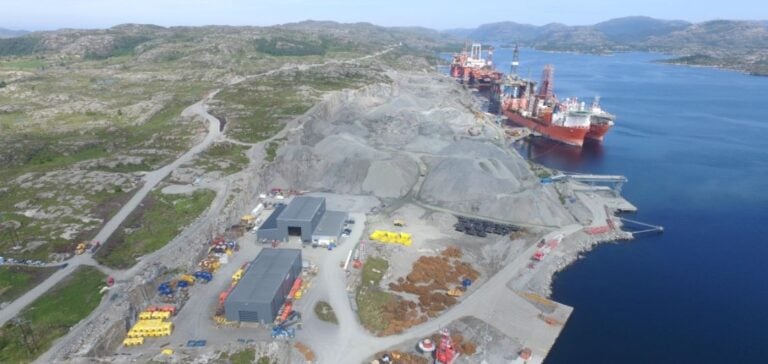The supply of green ammonia will be essential to Germany’s energy transition, offering an alternative to fossil fuels for hydrogen production.
A strategic agreement with Norway
Germany’s EnBW (Energie Baden-Wuerttemberg AG) announces an agreement with the Skipavika Green Ammonia (SkiGa) project in Norway.
The agreement covers the annual supply of 100,000 tonnes of green ammonia from 2027.
This strategic commitment is part of the German industry’s decarbonization drive, replacing fossil fuels with more sustainable solutions. Green ammonia, produced using renewable electricity, is used to generate hydrogen via a cracking process, thereby reducing carbon emissions.
EnBW will collect this ammonia from the port of Skipavika, near Bergen, and distribute it to terminals and industrial sites in Germany and Western Europe.
Reducing CO2 emissions
The SkiGa project uses a 130 megawatt (MW) electrolyzer powered by local green electricity.
This installation will reduce CO2 emissions by 240,000 tonnes compared with the production of grey hydrogen, traditionally produced from coal or gas.
The project also benefits from funding from the European Hydrogen Bank, which will invest €720 million over ten years to support innovation in hydrogen.
EnBW holds a 10% stake in FUELLA, the local partner in the SkiGa project, securing an exclusive agreement for the long-term supply of ammonia.
Outlook for hydrogen in Germany
According to Peter Heydecker, EnBW Board Member for Sustainable Generation Infrastructure, “the green ammonia volumes secured for EnBW put us in a good position for market start-up and mark a further step towards a carbon-free energy supply”.
Germany, which recently adopted a national strategy for the import of hydrogen and its derivatives, expects up to 70% of its future hydrogen requirements to come from abroad, for reasons of availability and cost.
Global partner search
EnBW is seeking global sources and partners for various types of hydrogen, including methanol, ammonia and other e-fuels.
The company is striving to secure reliable and sustainable supplies to support Germany’s energy transition.
This initiative is part of a wider effort by Germany to reduce its carbon emissions and meet its climate targets, while ensuring a stable and sustainable energy transition.






















